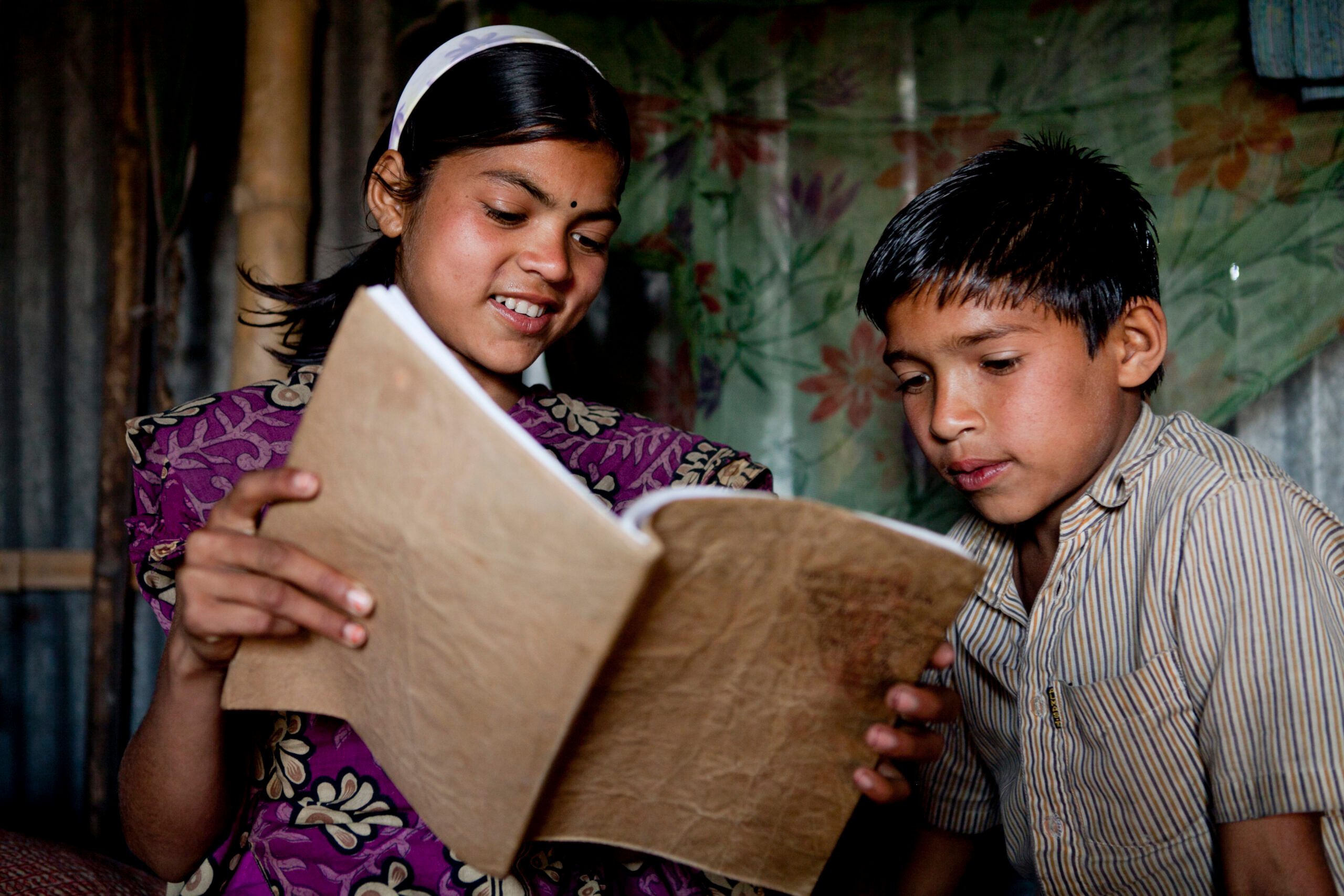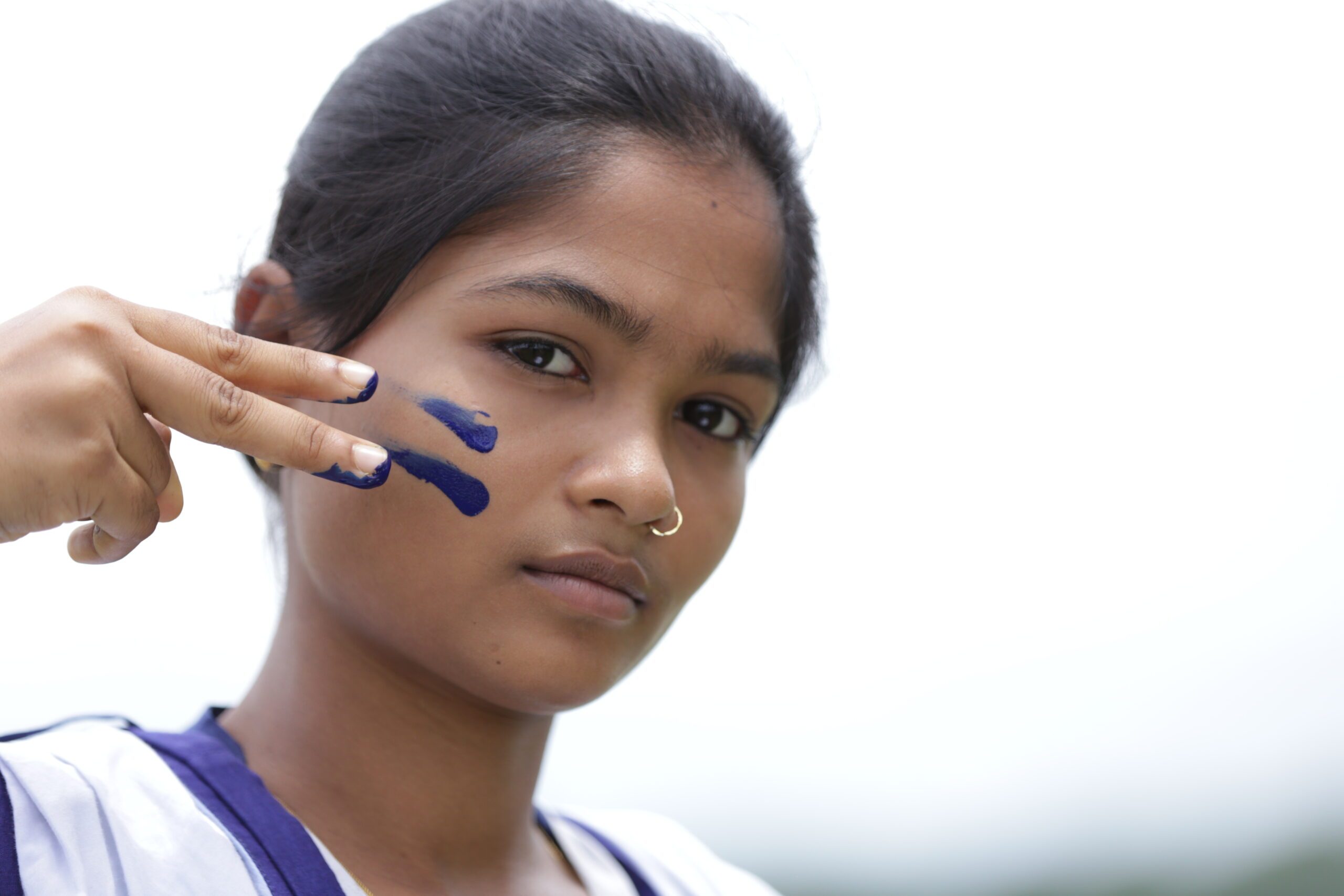Inclusive quality education for all – International Literacy Day
16 October 2024Abu Sayem Rabbi, Young Professional (Research) from Plan International Bangladesh writes about the need for inclusive quality education and efforts to close the literacy gap to empower marginalised youth in Bangladesh.
International Literacy Day was celebrated recently, a global observance that began in 1967. Held every year on September 8th, this day reminds us of the role of literacy in building a more just, peaceful, and sustainable society. The theme for International Literacy Day 2024 is “Promoting multilingual education: Literacy for mutual understanding and peace.” In today’s world, using a multilingual approach to literacy that starts with people’s native languages is especially effective. It offers cognitive, educational, and socio-economic benefits, promoting mutual understanding and respect while strengthening community identities and shared histories.

Education – a fundamental human right
Literacy is a fundamental human right. It empowers people by opening doors to other rights and freedoms and offers the tools needed to acquire knowledge, skills, and values that support equality, justice, and peace. By promoting literacy, we help cultivate behaviours and attitudes that strengthen relationships with each other and the planet. This aligns with the global mission to achieve the 2030 Sustainable Development Goals (SDGs), particularly SDG 4: “Ensure inclusive and equitable quality education and promote lifelong learning opportunities for all.”
Bridging the literacy gap – overcoming challenges
Despite progress, millions of people still struggle with literacy. In Bangladesh, literacy rates have improved, rising from 65.6% in 2016 to 74% in 2022. However, challenges remain, with children facing obstacles in acquiring basic literacy skills and many still out of school.

Serving students through sponsorship
During the COVID-19 pandemic in Bangladesh, children’s education faced a major setback as schools were closed due to lockdowns. While some children in urban areas, especially those with reliable internet access and devices, were able to continue their studies through online classes, many others were not as fortunate. Children from underprivileged backgrounds and rural areas struggled to keep up with their education, facing significant challenges due to the lack of access to online learning resources.
In this adverse context, Plan International’s Sponsorship Programme in Bangladesh helps children aged 0-24, particularly those whose education has been disrupted by the COVID-19 pandemic. By providing extra tutorials, learning materials, and financial support, the programme has helped nearly 5,000 students recover lost learning. Through parenting education, early childhood development centres (Shishu Bikash Kendro), and vocational training, the programme empowers both children and youth with the skills they need to succeed.
“Literacy is a fundamental human right. It empowers people by opening doors to other rights and freedoms and offers the tools needed to acquire knowledge, skills, and values that support equality, justice, and peace.”
Abu Sayem Rabbi
Inclusive quality education – against child marriage
Child marriage has long been a significant social issue in Bangladesh, and the situation worsened during the COVID-19 pandemic. With schools closed and education disrupted, many parents, particularly in rural areas, felt pressured to marry their daughters before they turned 18. The primary challenge during this time was finding ways to keep girls engaged in their education until the situation improved.
Addressing the above-mentioned problem, Plan International Bangladesh’s Child Bride to Bookworm project, focuses on reducing early marriage and keeping girls in school. With 94% of targeted learners returning to school post-COVID, the project far surpasses the national average. It emphasises alternative learning, gender equality, and mental health support, helping both students and teachers adopt innovative, gender-responsive approaches to education.
Girls Get Equal
The Girls Get Equal campaign takes a similar approach in its stride towards inclusive quality education by promoting girls’ education and youth empowerment. By creating safe, inclusive environments and providing SRHR (sexual and reproductive health rights) training, the project helps keep girls in school and advocates for gender equality. This project also supports out-of-school children with accelerated learning opportunities.
Make schools safe for girls
The Gender Responsive School and Community Safety Initiatives project improves the education experience by making schools safer for girls. It has built girls-friendly washrooms, renovated school facilities, and constructed ramps for students with disabilities. Through school improvement plans and disaster preparedness efforts, the project reduces dropout rates and creates a safer learning environment for all students. It also trains teachers, school management committees, and students in safeguarding and disaster preparedness.
The spirit of International Literacy Day
The focus on literacy as a human right, gender equality, and safe learning environments help build a more just and sustainable future for children in Bangladesh. By addressing education gaps, ensuring inclusive quality education, empowering marginalised youth, and fostering a culture of mutual understanding and peace, we can make a contribution towards achieving the SDGs and promoting literacy as a foundation for a brighter future.